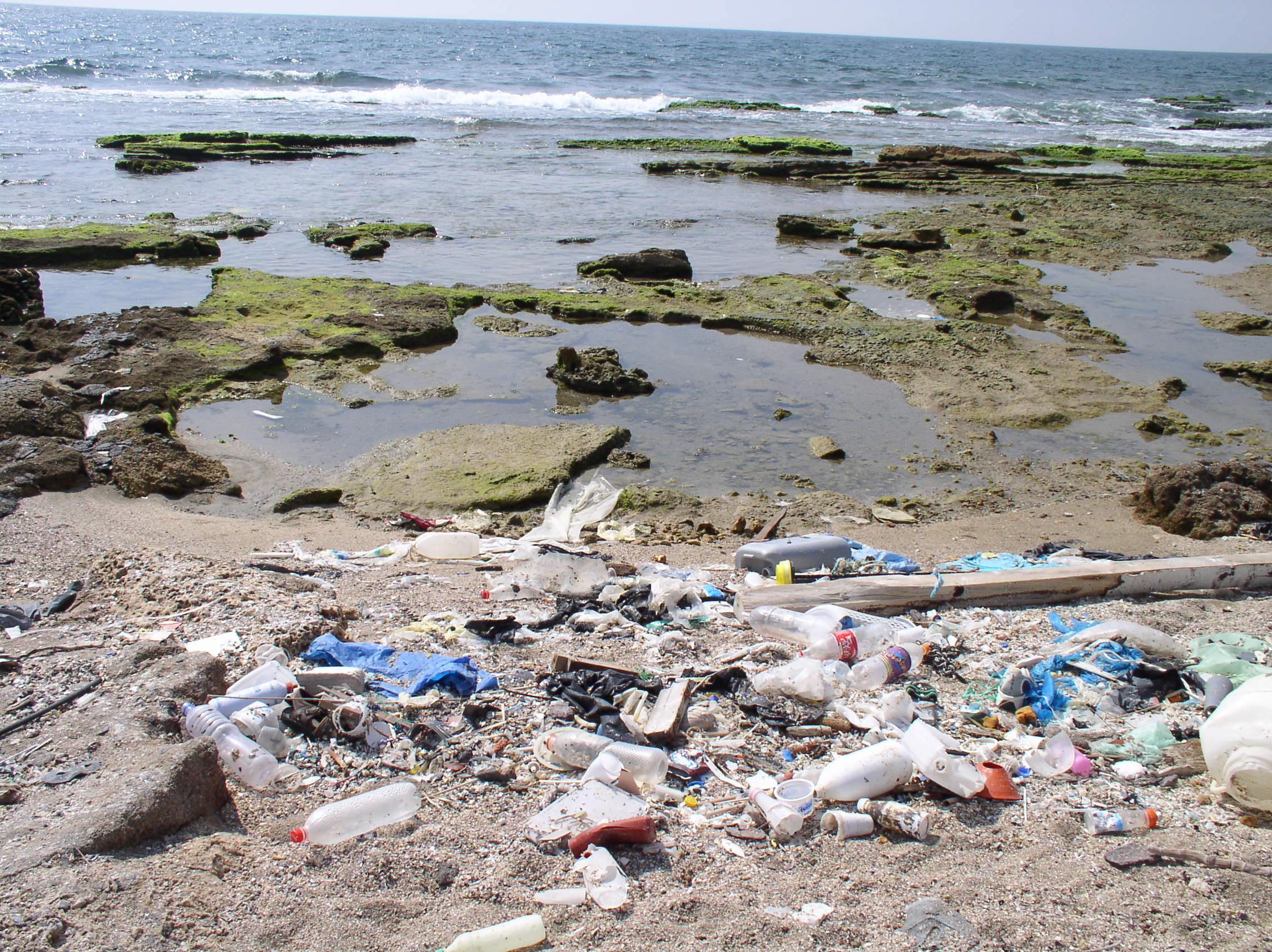5.3 Million Tons: Why Is Waste Volume Soaring?
Refrigerators, ovens, clothing, and household waste: Waste disposal sites are dealing with 5.3 million tons of mixed urban waste. How can we minimize environmental damage?
 (Photo: The Green Police)
(Photo: The Green Police)Contents of an entire home on the street: worn-out sofas, washing machines, refrigerators, old toys, clothing, ovens, and more—thousands of products are discarded at street corners in the weeks leading up to Passover. These create overloads at waste management sites and contribute to the ongoing damage to our planet, not to mention the phenomenon of using disposable utensils.
The volumes of waste disposal are significantly increasing, partly due to consumption habits—Israelis purchase, buy, order, renew—and throw away. The Ministry of Environmental Protection is forming a plan to reduce the waste going to landfill, with the goal of having most waste recycled in the coming decade. What can we, as citizens, do? Change even slightly our household waste disposal habits.
"Generally, there is a fixed structure of waste disposal from authorities on a weekly basis," says Oded Netzer, head of the Waste Treatment Division at the Ministry of Environmental Protection. "Usually, there is a significant increase in waste disposal before every weekend, and on Sunday, most of the waste is handled. Throughout the rest of the week, there is less collection. The phenomenon becomes much more significant and severe before holidays, especially before Passover. Two or three days before the holiday, there is a very significant spike in waste collection, so the sites handle one and a half to sometimes two times more than on regular days." Netzer is responsible for handling urban waste, the waste produced daily by citizens, as well as construction debris. "The increase in quantities is noticeable in mixed waste (household) and bulky waste collected from sidewalks such as sofas, carpets, and garden waste. Sites take two to three days to handle the waste, sending it for landfill or recycling to return to routine."
The law regulates the disposal of electronic waste (various electrical products) so there is an option to return the old electrical product when receiving the new one. Oded states, "Not all citizens are aware of the disposal arrangements, and besides, some throw products without having purchased replacements. Many leave electronic waste on the street. Authorities collect these products, some go to bodies responsible for handling them, and some go to landfill and transfer stations. Some end up buried in the ground, which is not the best option, given that landfill has a high potential for causing harm. The absolute majority is collected by the authorities or the responsible bodies and is handled. Sofas, for instance, are transported by authorities to transfer stations, sometimes dismantled, and recyclable materials go to recycling, while the rest is landfilled."
Significant Increase in Waste: Consuming and Buying
According to the Ministry of Environmental Protection, each citizen in Israel generates 1.7 kg of waste per day. "In Israel, there are 5.3 million tons of mixed urban waste per year," says Oded. "We produce a lot of waste per person, mainly due to increased consumption—buying a lot and recycling less, landfilling more. We are similar to the U.S. and less to Western Europe. We have a new waste management strategy, aiming for most waste to go to recycling in the decade (2020-2030). Currently, 78% of waste goes to landfill (burial in ground) and only 22% to recycling."
In modern world countries, there is a mix of waste treatments. Besides recycling, there is energy recovery—using the product's calorific value. Oded: "We are starting to promote this issue and definitely aim to reduce landfill as much as possible, recycle, and recover energy."
 (Photo: Green Police)
(Photo: Green Police)What Does the Law Say? What Must Be Recycled?
"In terms of legislation, there are things that must be recycled by law such as the Packaging Law, the Electronic Waste Law, and the Deposit Law on beverage containers. Regarding general waste—there is no legislation; it's up to local authority decision and a function of available facilities and costs. We are in the process of setting up facilities to subsidize more environmental processes and encourage authorities to direct waste to more environmentally friendly sites."
Source Separation of Domestic Waste—Where Is the Project?
"The ministry promoted source separation of organic waste, and indeed, over 40 municipalities joined the project; some stopped the process, and around 20 authorities continue the process. We strongly believe in source waste separation, even the orange bin, the packaging bin, is a kind of source separation, just like the blue bin separates paper waste at the source. The more waste is separated at its source, the higher the ability to recycle. These are long-term processes and we're relatively young in this."
Why, In Your Opinion, Is Environmental Protection Not Gaining Popularity?
"It’s a behavioral action that takes time to get used to, it’s not self-evident, the easiest thing is to throw everything together. In Europe, these processes took decades before things became ingrained. It requires us to do advocacy and to invest resources in advocacy and advertising, and people can really connect to it. For example, source separation of organic waste is a small thing you do at home, but anyone can influence how our environment looks. It’s a matter of daily routine—a person needs to know they have two or three bins, and they throw into each the appropriate waste. It’s not a big deal. Youth understand this and instill it in their homes. You’re not doing a big favor or an enormous effort—you’re changing something small in your habits, which makes everyone better."
What Will Be Done With the Mountains of Waste in Another 20 Years?
My targets for 2020-2030 are to significantly reduce landfill, reaching 26% landfill waste. We have a strategic plan, with a budget of over 4 billion shekels, and we hope to join the advanced countries in Europe in environmentally responsible waste management. Western and Northern European countries manage waste much better than we do in terms of facilities, source separation, environmental awareness, and cooperation. It is clear to every resident that there is no other choice but to separate the waste."
There are materials that can be recycled to get a product equivalent to the original: "Iron returns to iron and glass, for example, a glass bottle, can be recycled endlessly. There are more challenging materials like plastic, although part of the plastic we recycle. In some materials, quality is slightly compromised, producing a product slightly inferior to the original, in some we manage to maintain the same level. There's a certain limitation especially in composite products, like plastic."
What Are the Consequences of Landfilling Waste?
"Landfilling has several environmental problems: it creates odor issues and emits gases like methane, a very significant gas. If the landfill is not correctly managed, or there are holes, the buried waste could penetrate groundwater and contaminate soil and water sources. Besides, it occupies a lot of space."
Besides Advocacy on Waste Separation, Is There Room to Explain Excess Consumption Damages?
"Absolutely right. We are working on a national waste prevention program. We've already launched a campaign to reduce consumption, which is a very big issue. We believe it's important and are working on an advocacy program to cut down quantities. We are working on advocacy regarding the use of disposable utensils, which is an unusual phenomenon, even unrelated to Passover."
Illegally Dumped Construction Waste: A "National Plague"
According to the Ministry of Environmental Protection, a recent ruling by the Magistrate's Court in Rishon Lezion imposed a total fine of 273,000 shekels along with community service, probation, and commitments for illegal dumping of construction waste in public areas. Additionally, operating a waste disposal site on agricultural land near Be'er Ya'akov without a business license and in violation of the Cleanliness Order.
In another incident, following a joint operation of the Green Police at the Ministry of Environmental Protection and the Haifa District, 730 tons of waste were removed from a pirate transfer site in the Kiryat Ata area (east of Highway 22), and the site was closed.
Following the discovery of the pirate transfer site, inspectors from the Green Police and the Environmental Protection Desk of the Israeli Police conducted a raid, during which the truck driver and the site owners were detained for questioning under warning, and a criminal investigation file was opened. Additionally, a truck from which waste was dumped was seized.
"Illegal construction waste dumping is a 'national plague'," says Oded. "We estimate that between 30% to 50% of the waste doesn’t reach authorized sites. Almost everywhere you go, in open areas, you see piles of construction waste. It’s one of the central issues in waste management. We are promoting legislation on the issue, although the situation is very problematic because there’s a market failure. The person supposed to bring the waste to an authorized site is the last one with an economic interest to do so. Essentially, when someone builds a house, they pay for the disposal, and the disposer takes a lot of money with a truck. If they reach a site, they are supposed to leave the waste and pay for its handling; if they dump it illegally, the money stays with them. Many haulers can’t resist the temptation and dump in open areas, harming the public and the environment. Almost no local authority lacks open spaces where waste isn’t dumped, sometimes ranging in hundreds of thousands of tons of construction waste. There’s a 20-second risk with a very high profit margin. The chance of being caught is relatively small despite all the efforts we invest. While they take the risk, the entire public suffers. Anyone who sees waste dumpers is invited to report to the authority or the ministry."

